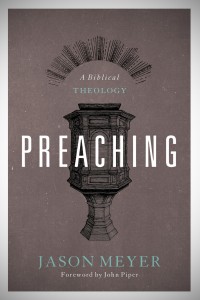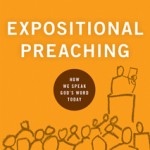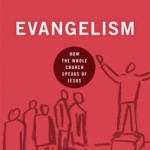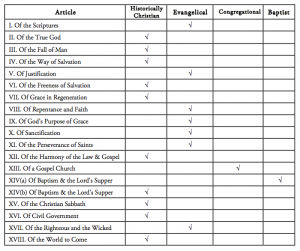“The more thoroughly your mind is steeped in the Spirit of prayer, and of communion with God, when ascend the sacred desk, the more easy and delightful will it be to preach; the more rich and spiritual will your preaching be; the more fervent and natural your eloquence; and the greater the probability that what you say will be made a blessing.” – Samuel Miller
Monthly Archives: April 2014
What is Faithfulness and Fruitfulness?
Yesterday, I tried to provide some clarity to the debate about how we ought to measure our ministry, by faithfulness or fruitfulness? The right answer is both.
Three foundational statements ground this idea:
- Faithfulness and fruitfulness both come from God.
- Faithfulness is fruitfulness and fruitfulness is faithfulness. They are perspectives on godliness.
- Fruitfulness is not defined by the size of the increase, but the reality of increase.
Now, we are talking about the measure of a ministry not just some esoteric explosion of common presuppositions of the day. No, we want some sturdy handles on which to evaluate ministry. But we want biblical handles. The best way to do that is to show what corporate faithfulness and fruitfulness is according to Scripture.
5 MARKS OF FAITHFUL & FRUITFUL CULTURE
What we want in our churches is a culture of faithfulness and fruitfulness, where Spirit-wrought faith and fruit are regular and increasing. As I look at Scripture I see five distinct, yet universal, characteristics of corporate faithfulness and fruitfulness. Let me run through each with brief biblical comment and then offer some questions intended to help measure this aspect of the church’s culture.
A culture of prayer. If we read Paul’s letters to the early churches in one sitting, I bet we’d quickly hear the metronome that keeps the rest of his instruction in time: the beat of prayer. In his letter to the Romans Paul commands, “be constant in prayer” (Rom. 12:12); to the Ephesians, “pray at all times in the Spirit” (Eph. 6:18); to the Philippians, “in everything by prayer make your requests know to God” (Phil. 4:6); to the Colossians, “continue steadfastly in prayer” (Col. 4:2); to the Thessalonians, “pray without ceasing” (1 Thess. 5:17).
To measure faithfulness and fruitfulness in this area ask questions like:
- Is prayer a vital element in our gathered worship services?
- Do our corporate prayers reflect the prayers of Scripture; i.e. prayers of praise, confession, thanksgiving, and petition?
- Do we have times for the church to pray outside of the regular worship gathering? Are more and more of our members attending these meetings?
- Are increasing numbers of members meeting during the week to pray and encourage one another in prayer?
- Are our prayers increasingly reflecting the priorities of Scripture?
- Are faith, hope, and love growing as a result of God’s answered prayers?
A culture of the word. One of the great themes of the Bible is the connection between God’s Word and life. When God gives life, he does so through the power of his Word (Psalm 119:37). With His word He spoke creation into existence (Gen. 1:1), a nation into existence (Ex. 20:1), a people into existence (Ezek. 37:7-10), and He upholds everything by the power of His word (Heb. 1:3). Christ is the incarnate Word (John 1:1-4) who redeems His church with His blood and calls her to be “a pillar and buttress of truth” (1 Tim. 1:15). He gave shepherds and teachers to His bride (Eph. 4:11) so that they might preaching His word (2 Tim 4:2) and so edify God’s people (Eph. 4:12; 2 Tim. 3:16).
To measure faithfulness and fruitfulness in this area ask questions like:
- Is the word preaching with clarity and boldness?
- Are the shepherds progressing in the skill of handling God’s word?
- Is there growing commitment among the membership to devote themselves to hear God’s word preached each week?
- Is there growing delight in our members’ disciplined reading of Scripture?
- Are the songs we sing saturated with biblical truth?
- Are we regularly partaking of that visible sermon, the Lord’s Supper?
- Is theological growth valued and pursued with humble earnestness?
- Are members committed to arriving early and stay late to welcome and engage guests?
A culture of love. The greatest commandments are one’s of love: love the Lord with all your being and love your neighbor as yourself (Mark 12:30-31). How will the world know that we are faithful disciples of Christ? If we have love for one another (John 13:34-35). When all the parts of the church are working together properly, the church will build itself up in love (Eph. 4:17).
To measure faithfulness and fruitfulness in this area ask questions like:
- Is our church maintaining the unity of the spirit in the bond of peace?
- Are personal preferences put aside for the cherishing of corporate unity?
- Are our members increasingly interceding for other members in times of spiritual and physical need?
- Are members committed to serving not merely out of gifting, but loving care to meet a need?
- Is formative and formal church discipline lovingly practiced whenever necessary?
- Are older members gladly serving younger members?
- Are increasing numbers of adult members joyfully serving the children and students of the church?
A culture of discipleship. This is the church’s mandate, “to make disciples” (Matt. 28:19), so disciple-making – in its full sense – must be present in a faithful and fruitful church. As a people called by Christ and possessing the Spirit of Christ, the church aims to grow into the image of Christ (Eph. 4:22-24). When the church’s conversation is fitting into its Scriptural mold, it will constantly be building up and giving grace (Eph. 4:29).
To measure faithfulness and fruitfulness in this area ask questions like:
- Are older members increasingly delighted to disciple younger members? Are younger members eager to be discipled by older members?
- Is there a growing sense of sin leading to repentance? And a correlating increase in forgiveness?
- Is every one of our members in a discipling relationship?
- Are our members sacrificing personal interests or projects to help others grow in Christ?
- Are increasing numbers of our people hosting Bible studies in their homes for neighbors? At work for co-workers?
- Is family worship becoming more regular in our homes?
- Are our parents leading their children in the discipline and instruction of the Lord? Are the children subsequently increasing in obeying and honoring their parents?
- Is sacrificial giving growing in our membership?
A culture of evangelism. Jesus came to seek and save the lost and has commissioned His people to do seek and teach the lost (Matt. 18:11, 28:19). Christians are always to be ready to give an account of their faith in Christ (1 Pet. 3:15). A faithful pastor will “do the work of an evangelist” (2 Tim. 4:5) and will equip His people to do the same.
To measure faithfulness and fruitfulness in this area ask questions like:
- Is there an increasing compassion and concern for the plight of sinful men?
- Are we prioritizing our week to make room for hospitality?
- Are growing numbers of members sharing the gospel with the lost?
- Are we finding more people stirred to take the gospel to all nations?
- Do our members know their neighbors?
- Are members increasingly bringing lost friends and family members to church?
- Is there an increasing accent in our prayers for people to come to faith in Christ?
- Are we increasingly seeing people baptized?
- Are there groups of members banding together for the task of encouraging and challenging each other in personal evangelism?
A FAITHFULLY FRUITFUL CHURCH
These are the avenues on which a faithful and fruitful church loves to ride: prayer, the word, love, discipleship, and evangelism. We love to hear if we are to be faithful, and it is only here that we will ever be fruitful.
In sum, the question ought not to be, “Is faithfulness or fruitfulness the right metric for evaluation?” Scripture doesn’t separate the two, so let us not tear asunder what God has joined. What we long for is faithfulness in fruitfulness.
The Faithful and Fruitful Debate
Last week the boys over at Reformation 21 had some friendly friction over whether or not fruitfulness should be the measure of ministry.
It all began when Phillips disagreed with Tim Keller who says we must not settle for mere faithfulness, but must see fruitfulness as the measure of our ministry.1 Phillips was balanced in his disagreement, showing how one can still profit from a critique that falls short of the biblical mark. Paul Levy jumped into the fray reminding readers, “A healthy tree or plant will be fruitful. Faithfulness and Fruitfulness must never be divided.” Finally, Todd Pruitt rightly acknowledged that the three men are likely talking past each other, wondering if a preoccupation with fruitfulness will “easily lead our hearts down a dangerous path.”
This is not the first time the faithfulness vs. fruitfulness tiff has appeared under the sun, nor will it be the last.2 I do think that all three Ref21 men are right in their own way, but we need to take the conversation a bit further. We need to define our terms with greater precision. What exactly is faithfulness in ministry? What exactly is fruitfulness in ministry?
BUILDING THE FOUNDATION
If we are going to understand rightly how to balance faithfulness and fruitfulness in ministry, we must load our hearts with two biblical presuppositions.
First, faithfulness and fruitfulness are consequences of God’s sovereign grace. Many people, and rightly so, employ 1 Corinthians 3:6-7 when talking about the issue. But it seems that the language often has an air about it of, “Just like Paul and Apollos, I am called to be faithful and then let God worry about the fruit. After all, he alone gives the fruit.” We must acknowledge that both faith and fruit come about only through the sovereign kindness of God. Yes, God alone gives the growth – i.e. fruit – (Col. 2:19), but He also gives the faith (Eph. 2:8).
Knowing faithfulness and fruitfulness are sovereign acts of God help us from pitting the two against each other, which leads to the second foundation.
Second, faithfulness and fruitfulness are perspectives on godliness. We can too quickly drive a wedge between these noble callings and, like human beings are prone to do, create a super heavyweight prize fight between friends. But when the great apostle defines the fruit of the Spirit, what is one of the fruits He includes? Faith.
Thus, faithfulness is fruitfulness. If you are faithful, you are fruitful. And all glory goes to God because He creates and sustains both.
THE MORTIFICATION OF WESTERNIZATION
I may just be playing around with spiritual straw, but it always seems to be the smaller church guys who place the accent on faithfulness and the larger church leaders who emphasize on fruitfulness. May this merely be a product of western minds that can’t stop thinking about “measurables”?
Now, the Bible is keen on God’s people measuring things. This is exactly what Paul has in mind in 2 Corinthians 13:5 when he talks about “examining oneself”; he’s talking about measuring our spiritual state. So we must say that measureables are not unbiblical. They may, however, be defined unbiblically.
And this seems to be the issue in the “Faithful vs. Fruitful” fight. I fear we have loaded “being fruitful” with western notions of quantifiable numerical increase—i.e. “bigger is better.” If this is true (and I think it is), we have not defined the term biblically.
One needs only to look at the Parable of the Talents to understand the appropriate and biblical tension on numerical growth. One servant received five talents and brought his master five more. Another received two talents and brought his master an additional two. And they both received the same commendation, “Well done, good and faithful servant.” Do you see how helpful this is to the fight at hand? Fruitfulness is a sign of faithfulness in both situations, but the size of the fruit doesn’t enter the equation. The amount of the increase isn’t the issue; it’s the reality of increase.
THE COURSE IS SET
These then are the three foundational building blocks for right thinking on this matter:
- Faithfulness and fruitfulness both come from God.
- Faithfulness is fruitfulness and fruitfulness is faithfulness. They are perspectives on godliness.
- Fruitfulness is not defined by the size of the increase, but the reality of increase.
If we get these essential truths right in our minds, our souls and ministries will have the necessary ballast to navigate the often treacherous and testy waters of “Faithfulness vs. Fruitfulness.”
Tomorrow I will attempt to provide a few basic handles on what practical faithfulness and fruitfulness entail.
- The exact quote from Keller’s Center Church is, “A more biblical theme for ministerial evaluation than success or faithfulness is, fruitfulness.” ↩
- The TGC folks even assigned Chandler the topic at last year’s conference. ↩
Watch continually over your own spirit, and do all in love; we must grow downwards in humility to soar heavenward. I should recommend your having a watchful eye over yourself, for generally speaking as is the minister so are the people. – John Thornton
One Meal at a Time
One of my best friends growing up had a Chihuahua named Goliath. The name was rather apt, for Goliath was the largest little dog I’ve ever seen.
His girth was due, it seemed, to the chaos often surrounding meal time at my friend’s house. They were a large family with large appetites and small worries about any food falling to the floor. And so it was that Goliath’s girth expanded.
If dogs could talk I doubt Goliath would recall many specifics about the offerings he consumed, yet his weight would bear great testimony to their power.
And so it is with faithful preaching.
THE RIGHT PERCENTAGE
I doubt my preaching experience and evolution is terribly different from many pastors. My first three years were spent in student ministry, and weekly preaching to teenagers allowed me to figure out the preparation and delivery methods best suited to my personality. The next five were spent as an associate pastor with sporadic preaching opportunities (6-8 times a year). And these years were spent in regular pursuit of “the home run.”
But it didn’t take long to realize that home runs in the pulpit were elusive, and few and far between. On-base percentage was, and is, better than slugging percentage. Faithful exposition, week in and week out, is the ordinary means by which God grows His church.
PREACHING THAT FATTENS THE SOUL
I have come to think of the preaching as being somewhat like those mealtimes at my friend’s house from days gone by, when Goliath excitedly snapped up any and every crumb. Many of my church members will not be able to recall specific sermon points or applications years after the original delivery. But, Lord willing, what you will be able to see is the quantitative impact of their soul feasting on God’s word. You’d see souls transformed for the glory of God and being powerfully renewed unto the image of Christ. Their spiritual weight would bear testimony to the power of God’s word.
And that really is to be the preacher’s aim isn’t it? Souls fattened by the truth and in the truth. Paul said, “Him we proclaim, warning everyone and teaching everyone in all wisdom, that we may present everyone mature in Christ.”
Now, that is a good word . . . mature.
We preach to present men, women, and children mature before God. So rather than aim for the rightly desired, but rarely achieved grand slam of exposition that blows the winds of revival through the city, let’s aim for the simple and plain preaching of God’s word.
Such preaching fattens the soul.
A Document for Unity and Maturity
Yesterday I offered some thoughts on why an elder confession of faith is valuable in the life of a local church.
Today I want to offer two quick points of how it is valuable.
PRACTICAL BENEFITS OF AN ELDER CONFESSION
Unity. I think we can all agree that we are unified insofar as we agree on what’s true. A church’s under-shepherds are to be models of Christ before the church. One thing elders must model in their labor together is the unity of the Spirit in the bonds of peace. An elder confession of faith, when done well,1 greatly increases what the elder board agrees on theologically. Such agreement can only increase unity.
Maturity. An elder confession of faith represents one of the best discipling tools a church can have. I am increasingly convinced that the best systematic theologies the church has are historic confessions. They are precise and concise; two qualities average church members appreciate. If your elder confession of faith represents a more detailed and thorough – yet harmonious – articulation of the faith than the confession for church members, what you thus have is a document that details theological maturity. So, the confession for membership represents the seed of theological and biblical awareness and the confession for eldership the ordinary maturation that seed.
Our elders are currently walking through the elder confession of faith with about 10 different men in our church and I have heard nothing but excited feedback. I think it would be the same for you.
- By “done well” I mean not drawing unreasonable lines in the doctrinal sand. ↩
An Elder Confession of Faith
One of the best parts of our recent elder training process at IDC was the use of an Elder Confession of Faith. Our church members subscribe to a revised version of the New Hampshire Confession (1853), while our elders also subscribe to a revised version of the Second London Confession (1689).
Allow me to postulate these next two days on the value of an elder confession – or affirmation – of faith. Today I want to address why they are valuable and tomorrow how they are valuable.
TO USE OR NOT TO USE AN ELDER CONFESSION?
Should a church have more stringent standards of subscription for elders than other members of the church? Mark Dever says, “No.” In his excellent book A Display of God’s Glory Dever writes,
I know that there are many godly, congregational, baptist churches which, in deciding to have elders, decide also to have different, more stringent standards of subscription for elders than for other members of the church. . . . While the desire for exemplary maturity in the elders of a congregation is healthy and even biblical, this means of achieving it may leave something to be desired. Do we see such clearly modeled in Scripture? No.
He fears that such a formal requirement would tend to move the church to a more “clergy-dependent” position. It’s a very rare day when I find myself disagreeing with the Bishop of 9Marks, but I side with Piper on this one.
About fifteen years ago the elders at Piper’s church, Bethlehem Baptist Church, “felt the need to define what they believe and teach for the clarity and continuance of Biblical faithfulness in the church.” Piper, surprise surprise, was charged to write the first draft. What became known as The Bethlehem Baptist Elder Affirmation of Faith is a model of biblical clarity and conviction.
I came very close to using it with our elders. My historical sensibilities led me to go with the revised 1689 Confession to show, in some sense, historical solidarity with the Baptist tradition.
DRAWING IN THE DOCTRINAL SANDS
The clear witness of the New Testament is that one needs to only make a credible profession of faith to be received into membership in a local church. Thus, the confession for church members ought not to draw more doctrinal lines in the sand than Scripture. It ought to be clear on Scripture, God, the gospel, and the church. Going much further than that would make subscription for members unnecessarily restrictive.
In fact, here is a screenshot from a handout we use in our membership class to show just how ordinary our church confession is:
Now the question when it comes to elders is, “Should there be a higher level of subscription?” Or maybe a better way to word it is, “Should there be a more detailed level of subscription?” In my view the answer is, “Definitely.”
The ecumenicism of the New Hampshire Confession is fabulous for church membership, but is lacking when it comes to eldership. I could see a continuationist, convinced cessationist, progressive dispensationalist, and confessing covenant theologian all agreeing with the document. I don’t think that’s a bad thing for church membership, but for an elder board such diversity of theological conviction undermines unity in theology and philosophy. Few would probably disagree with me here.
So then a more detailed confession that draws simple – yet appropriate – lines in the doctrinal sand is valuable for testing and teasing out the convictions of elders candidates. I wouldn’t advocate a document that draws such lines all over the place, but it would draw foundational lines.
Here’s are two simple examples of this works out at our church with the New Hampshire Confession (NHC) and the Second London Confession (SLC):
- Agreement with the NHC means subscription to the infallibility of Scripture
– Agreement with the SLC means subscription to the infallibility and sufficiency of Scripture - Agreement with the NHC means subscription to the sovereignty of God
– Agreement with the SLC means subscription to sovereignty of God and compatibilism
So the elder confession allows us to “up the ante” of theological conviction, which I believe is a good thing the more a person increases in leadership responsibility. One way to think about it as when you join a church very few things are in the “closed hand” of theology, but the further up and further in you go the more get put into confessional fisticuffs.
THE AIM OF UNITY
Titus 1:9 says an elder “must hold firm to the trustworthy word as taught, so that he may be able to give instruction in sound doctrine and also to rebuke those who contradict it.”
Elder confessions of faith, when done rightly, help existing elders more sharply discern what doctrines a candidate would teach and which doctrines he would refute. So rather than creating a more “clergy-dependent” church, the document actually increased Ephesians 4 type realities: unity of the Spirit in the bond of peace, equipping saints unto unity in the knowledge of the Son of God, and speaking the truth in love.
Evangelion (what we call “the gospel”) is a Greek word, signifying good, merry, glad, and joyful news, that makes a man’s heart glad and makes him sing, dance and leap for joy! – William Tyndale
Teaching & Preaching
 Yesterday I prepared the first draft of my sermon for this Saturday on Mark 13 and kept thinking to myself how the text demands an unusual amount of what I would call “teaching.”
Yesterday I prepared the first draft of my sermon for this Saturday on Mark 13 and kept thinking to myself how the text demands an unusual amount of what I would call “teaching.”
I thought to myself, “Is that a good thing? Shouldn’t I have more ‘preaching’ in the sermon?” Then I remembered Jason Meyer’s helpful discussion on the relationship between teaching and preaching in his excellent book Preaching: A Biblical Theology.
TEACHING VS. PREACHING?
He says that preaching has three phases: stewarding, heralding, and encountering. The stewarding phase focuses on the content of preaching, the heralding phase focuses on the tone of preaching, and the encountering phase focuses on the reception of preaching.
He believes, and rightly so in my view, that the two terms stewarding and heralding help us understand the relationship between teaching and preaching. “I believe preaching refers to how something is stated (in a heraldic way), while teaching focuses on the content of what is said (unpacking something)” (24). He goes on to say,
Another reason why people should not sharply distinguish preaching and teaching is that the two are often used interchangeably in Scripture. For example, the response to Jesus’ most famous sermon (the Sermon on the Mount) defines the sermon as ‘teaching’ (Matt. 7:28). In the same way, a verse in Romans sheds light on the interchangeable nature of the terms. Paul lays down a general statement for the Jews: ‘You then who teach others, do you not teach yourselves?’ (Rom. 2:21). When he give an example of this principle, he uses the term ‘preach’: ‘While you preach against stealing, do you steal?’ (2:21).
Therefore, the combination of the terms stewarding and heralding honors the intricate connection in Scripture between preaching and teaching. (24)
In short, preaching has to do with tone and teaching with content.
The best sermons preach and teach. They provide an education in Christ leading the soul to exultation of Christ. The next time you ascend to the sacred desk be both a steward and a herald.
Teach in your preaching and preach in your teaching.
Recent Reads
I love to read. By God’s grace I am a pretty fast reader; I usually read a couple books each week. I find it helpful to summarize my thoughts on each book and I offer those thoughts in the hope that you will be encouraged to either read or pass over the given title.
 Expositional Preaching: How We Speak God’s Word Today by David Helm. Chandler says this book is “the most helpful, concise, and useful book on expository preaching I have ever read.” Dever says if he could only assign one book for a preaching class this might be the one. Does the book live up to its hype? I would say so. I found the first chapter on “Contextualization” abundantly useful, especially when Helm talks about how “blind adherence to contextualization alters our preaching” (17). The alterations of impressionistic preaching, inebriated preaching, and “inspired” preaching are helpful categories to fight against. A great entry in this great series from 9Marks.
Expositional Preaching: How We Speak God’s Word Today by David Helm. Chandler says this book is “the most helpful, concise, and useful book on expository preaching I have ever read.” Dever says if he could only assign one book for a preaching class this might be the one. Does the book live up to its hype? I would say so. I found the first chapter on “Contextualization” abundantly useful, especially when Helm talks about how “blind adherence to contextualization alters our preaching” (17). The alterations of impressionistic preaching, inebriated preaching, and “inspired” preaching are helpful categories to fight against. A great entry in this great series from 9Marks.
 Evangelism: How the Whole Church Speaks of Jesus by Mack Stiles. Stiles is, by all accounts, a profoundly gifted evangelist. His previous book Marks of the Messenger stood as my favorite on evangelism, but this latest offering takes its place. The value of the book is found not only in the excellent encouragements offered for personal evangelism, but also in its focus on a culture of corporate evangelism. He says, “If you are part of a healthy church that has a culture of evangelism, you are a part of the greatest way of evangelism ever known.” Amen! If I had could only give one book on evangelism to church members, this would be it.
Evangelism: How the Whole Church Speaks of Jesus by Mack Stiles. Stiles is, by all accounts, a profoundly gifted evangelist. His previous book Marks of the Messenger stood as my favorite on evangelism, but this latest offering takes its place. The value of the book is found not only in the excellent encouragements offered for personal evangelism, but also in its focus on a culture of corporate evangelism. He says, “If you are part of a healthy church that has a culture of evangelism, you are a part of the greatest way of evangelism ever known.” Amen! If I had could only give one book on evangelism to church members, this would be it.
 Elders: How to Shepherd God’s People Like Jesus by Jeramie Rinne. In light of the two books above you might expect me to say that Rinne’s contribution to the “Building Healthy Churches” series is my new favorite on the topic of elders. It’s not, but it sure is close. In many ways I feel that he has ably condensed Anyabwile’s Finding Faithful Elders and Deacons and Witmer’s The Shepherd Leader into one accessible volume. The book is full of sound exegesis and sane application, and pokes devastating holes in the “Elders as Board of Directors” approach. I’d encourage any church member to read this book, it would help them get a better understanding of and appreciation for the biblical model of shepherding.
Elders: How to Shepherd God’s People Like Jesus by Jeramie Rinne. In light of the two books above you might expect me to say that Rinne’s contribution to the “Building Healthy Churches” series is my new favorite on the topic of elders. It’s not, but it sure is close. In many ways I feel that he has ably condensed Anyabwile’s Finding Faithful Elders and Deacons and Witmer’s The Shepherd Leader into one accessible volume. The book is full of sound exegesis and sane application, and pokes devastating holes in the “Elders as Board of Directors” approach. I’d encourage any church member to read this book, it would help them get a better understanding of and appreciation for the biblical model of shepherding.
 Is God Anti-Gay? by Sam Allberry. Few issues are as timely for Christians to get their minds around as what the Bible says about homosexuality. Is God Anti-Gay? comes from The Good Book Company’s little series “Questions Christians Ask” and Allberry’s contribution ought to be read by all Christians. The author struggles with same-sex attraction (SSA), and thus he is able to combine sharp biblical insight with a unique personal perspective . The book tackles questions like “Aren’t we just picking and choosing which Old Testament laws apply?” to “Can’t Christians just agree to differ on this?” to “What should I do if a Christian comes out to me?” Allberry has done the church an incredible service with this book. Get many copies for your church.
Is God Anti-Gay? by Sam Allberry. Few issues are as timely for Christians to get their minds around as what the Bible says about homosexuality. Is God Anti-Gay? comes from The Good Book Company’s little series “Questions Christians Ask” and Allberry’s contribution ought to be read by all Christians. The author struggles with same-sex attraction (SSA), and thus he is able to combine sharp biblical insight with a unique personal perspective . The book tackles questions like “Aren’t we just picking and choosing which Old Testament laws apply?” to “Can’t Christians just agree to differ on this?” to “What should I do if a Christian comes out to me?” Allberry has done the church an incredible service with this book. Get many copies for your church.
 The Evangelistic Zeal of George Whitefield by Steve Lawson. Reformation’s Trust “Long Line of Godly Men” profiles have all been excellent, but Lawson’s entries (Edwards, Calvin, Luther, Spurgeon) have been my favorites. And the admiration only continues with his work on Whitefield. I found my heart stirred afresh for holiness, the gospel, preaching, and evangelism. What a gift to God’s church Whitefield was! “Often as I have read his life”, said Spurgeon,”I am conscious of distinct quickening whenever I turn to it. He lived. Other men seemed to be only half-alive; but Whitefield was all life, fire, wing , force.My own model, if I may have such a thing in due subordination to my Lord, is George Whitefield; but with unequal footsteps must I follow in his glorious track.” This book will help you understand why the Prince makes no overstatement with that sentiment.
The Evangelistic Zeal of George Whitefield by Steve Lawson. Reformation’s Trust “Long Line of Godly Men” profiles have all been excellent, but Lawson’s entries (Edwards, Calvin, Luther, Spurgeon) have been my favorites. And the admiration only continues with his work on Whitefield. I found my heart stirred afresh for holiness, the gospel, preaching, and evangelism. What a gift to God’s church Whitefield was! “Often as I have read his life”, said Spurgeon,”I am conscious of distinct quickening whenever I turn to it. He lived. Other men seemed to be only half-alive; but Whitefield was all life, fire, wing , force.My own model, if I may have such a thing in due subordination to my Lord, is George Whitefield; but with unequal footsteps must I follow in his glorious track.” This book will help you understand why the Prince makes no overstatement with that sentiment.
 Destiny of the Republic: A Tale of Madness, Medicine, and the Murder of a President by Candice Millard. Not since Unbroken has a work of narrative fiction caused me to miss sleep like this one. Millard masterfully weaves together the tales of President James Garfield, his assassin Charles Guiteau, and legendary inventor Alexander Graham Bell into a narrative that is equal parts gripping and informative. Millard is not yet on the level of Hillenbrand, but give her some more time and she’ll be there. I am told she is currently writing on Winston Churchill, a publication I look forward to with high expectation.
Destiny of the Republic: A Tale of Madness, Medicine, and the Murder of a President by Candice Millard. Not since Unbroken has a work of narrative fiction caused me to miss sleep like this one. Millard masterfully weaves together the tales of President James Garfield, his assassin Charles Guiteau, and legendary inventor Alexander Graham Bell into a narrative that is equal parts gripping and informative. Millard is not yet on the level of Hillenbrand, but give her some more time and she’ll be there. I am told she is currently writing on Winston Churchill, a publication I look forward to with high expectation.
 The Camel Club by David Baldacci. The Camel Club, group of misfits who love conspiracy theories, stumbles upon a murder that has the predictable “astounding, far-reaching implications” threatening the very fabric of our national security. I am a sucker for such unrealistic predictability so I dove in despite my fear the outcome would be somewhat cheesy. The plot is interesting, in spite of being bloated by too many characters. I am not sure the conclusion actually crossed the border into the realm of “cheese”, but it nonetheless demands more faith from the reader than I can give. And so it is that my month-long Baldacci binge comes to its conclusion.
The Camel Club by David Baldacci. The Camel Club, group of misfits who love conspiracy theories, stumbles upon a murder that has the predictable “astounding, far-reaching implications” threatening the very fabric of our national security. I am a sucker for such unrealistic predictability so I dove in despite my fear the outcome would be somewhat cheesy. The plot is interesting, in spite of being bloated by too many characters. I am not sure the conclusion actually crossed the border into the realm of “cheese”, but it nonetheless demands more faith from the reader than I can give. And so it is that my month-long Baldacci binge comes to its conclusion.




